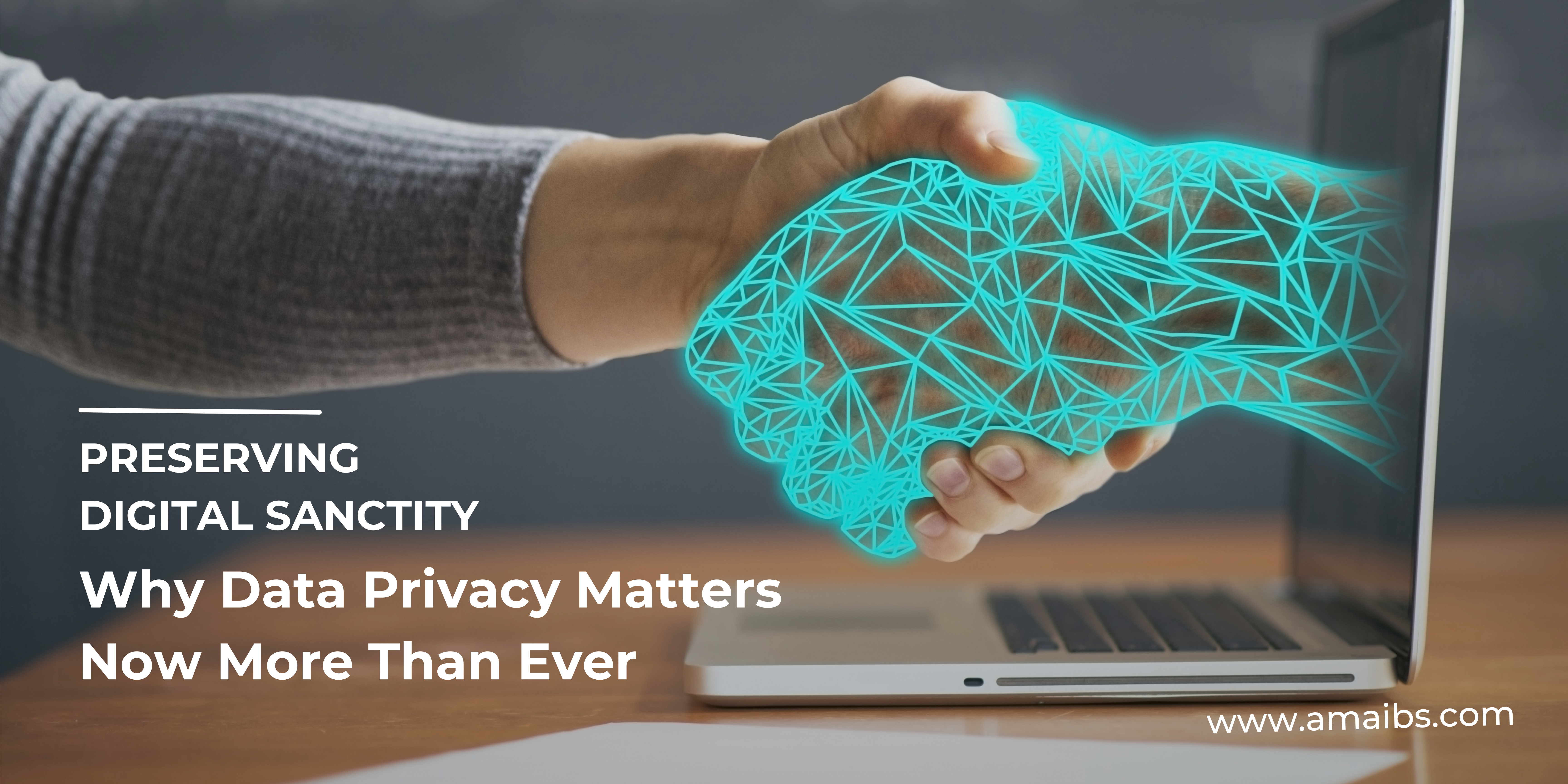Preserving the Digital Sanctity: Why Data Privacy is More Important Than Ever
In our modern, interconnected world, data has become the lifeblood of the digital age. We generate and share massive amounts of data every day, from our online transactions and social media interactions to the apps we use, the devices we own, and even the way we move about the world. But this digital transformation has brought with it a pressing concern – data privacy. It’s not just a buzzword; it’s a fundamental right and a critical need. In this blog, we’ll explore why data privacy is important and how it impacts our lives and society as a whole.
Protection of Personal Information
At the core of data privacy lies the protection of personal information. In the digital age, our personal information is akin to gold. It includes our names, addresses, phone numbers, email addresses, financial data, and even sensitive information like our health records. Without stringent data privacy measures, this information becomes vulnerable to theft, misuse, and abuse.
When personal data falls into the wrong hands, it can lead to identity theft, financial fraud, and other forms of cybercrime. Not only can this have dire financial consequences, but it can also wreak havoc on an individual’s emotional well-being and sense of security.
Safeguarding Individual Autonomy
Data privacy is a critical component in safeguarding individual autonomy. It allows individuals to maintain control over their personal information and decide when, where, and with whom they wish to share it. In a world without data privacy, this autonomy erodes, and individuals become increasingly powerless against unwarranted intrusions into their personal lives.
The ability to keep personal data private is more than just a convenience; it’s a fundamental right. It empowers individuals to make choices about what they disclose and to whom, ensuring that their online presence reflects their values and desires.
Fostering Trust in Digital Services
Data privacy is the bedrock upon which trust in digital services is built. When individuals have confidence that their data is being handled responsibly and ethically, they are more likely to engage with online platforms, engage in e-commerce, and share their information with service providers. Trust is essential for the growth and sustainability of the digital economy.
As consumers, we entrust our data to various platforms and organizations daily, from social media networks and email providers to e-commerce sites and healthcare providers. The moment this trust is broken – through data breaches or misuse of personal information – the very foundation of the digital world crumbles.
Nurturing Innovation and Growth
Data privacy isn’t just about protecting personal information; it’s also about fostering innovation and economic growth. When individuals feel safe sharing their data, businesses can harness this information to develop new products and services tailored to the needs and preferences of their customers. In a data-privacy-conscious world, innovation thrives as companies gain insights to make their offerings better.
However, when data privacy is disregarded, individuals become apprehensive about sharing their data. This reluctance stifles innovation and economic progress, as businesses cannot tap into the wealth of information needed to improve their products and services.
Legal and Ethical Imperatives
Data privacy is not just about compliance with laws and regulations; it is also an ethical obligation. In many countries, data protection laws have been enacted to ensure that individuals have the right to control their personal information. Violating these laws can lead to severe penalties for organizations, including fines and legal actions.
Furthermore, respecting data privacy is an ethical imperative that reflects an organization’s commitment to treating individuals with respect and dignity in the digital realm. It demonstrates a commitment to upholding moral principles and respecting personal boundaries.
Protection Against Cybersecurity Threats
The prevalence of data breaches and cyberattacks in recent years highlights the critical importance of data privacy. When organizations fail to protect the data they collect, it can be exploited by cybercriminals for financial gain or other malicious purposes.
Strengthening data privacy measures is essential in mitigating the risks of cybersecurity threats. By safeguarding data, we reduce vulnerabilities and protect not only individual privacy but also sensitive business information and critical infrastructure.
Avoiding Discrimination and Bias
In an era where data analytics and machine learning systems play a significant role in decision-making, data privacy becomes a critical tool in preventing discrimination and bias. When personal data is used to make decisions in areas such as hiring, lending, and insurance, the risk of bias creeping into automated decision-making systems is real.
Data privacy protections are crucial for ensuring that data-driven decision-making is fair and free from unjust discrimination, helping to maintain equality and social justice.
Safeguarding Health Information
The importance of data privacy is particularly pronounced when it comes to health information. Personal health data is among the most sensitive and personal information an individual can possess. Ensuring the privacy of health records is not only a legal requirement, as seen in laws like the Health Insurance Portability and Accountability Act (HIPAA) in the United States, but it is also vital for maintaining trust in healthcare systems.
Unauthorized access to health data can lead to medical identity theft and result in dire consequences for patient well-being. Strong data privacy measures are essential to protect these invaluable records.
Protecting National Security
Even governments rely heavily on data for various purposes, including national security. Data privacy is critical to strike a balance between legitimate government interests and individual rights. Ensuring that government surveillance is proportionate and respects privacy rights is crucial in a democratic society.
By upholding data privacy, we protect individuals from unwarranted government intrusion while maintaining national security, a delicate balance that is essential in the modern world.
Avoiding the Slippery Slope
One of the most fundamental reasons why data privacy is important is to avoid the slippery slope of surveillance and control. Without robust protections in place, we risk living in a world where our every move, communication, and interaction are constantly monitored. The erosion of privacy can lead to a dystopian reality where our freedoms and civil liberties are compromised.
In Conclusion
Data privacy is not a luxury but a necessity in our increasingly digital world. It is essential for protecting personal information, preserving individual autonomy, building trust in digital services, fostering innovation and growth, fulfilling legal and ethical obligations, and safeguarding against a range of threats. Data privacy is a matter of individual rights, societal well-being, and the sustainability of a democratic and free society. As technology continues to advance, the importance of data privacy will only become more pronounced, underscoring the need for robust protections and ethical practices in the digital age. It’s not just an option; it’s an imperative for our digital future.


